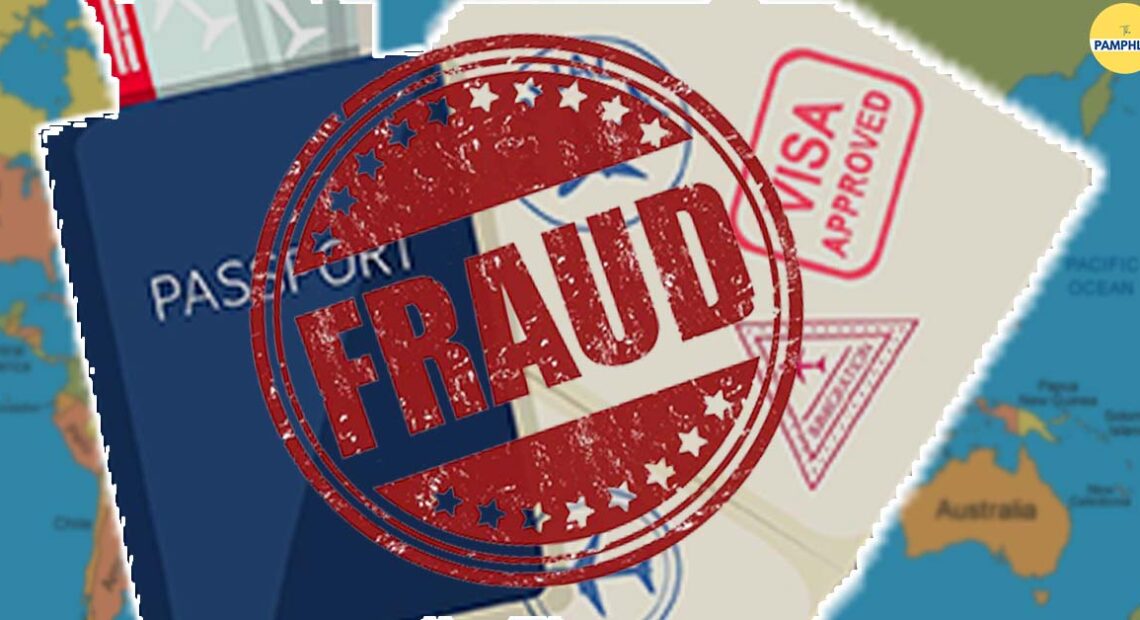Canada Govt Identifies 300 Cases of Visa Fraud by Indian Students

(Representative Image)
Introduction
The Canadian government has recently made a significant revelation regarding visa fraud within its student immigration system. A comprehensive investigation has exposed around 300 cases of visa fraud involving Indian students. This alarming discovery has brought to light the challenges and vulnerabilities within the immigration process, emphasizing the need for enhanced measures to maintain the integrity of Canada’s immigration system.
The Scope of Visa Fraud
The identification of 300 cases of visa fraud underscores the scale of the issue and the potential ramifications it poses for both the Canadian government and legitimate international students. Visa fraud encompasses various deceptive practices, including falsifying documents, misrepresenting intentions, and providing inaccurate information during the application process. Such fraudulent activities can undermine the trustworthiness of the immigration system, harm the reputation of genuine international students, and strain bilateral relations between Canada and countries like India.
Causes and Implications
The causes of visa fraud are multifaceted. Factors such as economic disparity, limited educational opportunities, and the allure of a better life abroad may drive individuals to resort to fraudulent means to secure a Canadian student visa. Additionally, the thriving industry of unauthorized immigration consultants who promise guaranteed visas can mislead vulnerable applicants into engaging in fraudulent activities. The implications of these actions extend beyond immigration control; they can lead to a strained relationship between Canada and India, impacting collaboration in various sectors.
Strengthening Immigration Integrity
The revelation of visa fraud cases highlights the urgency for Canada to fortify its immigration integrity through a multifaceted approach:
Enhanced Screening Processes:
The Canadian government should invest in advanced technology and thorough background checks to identify inconsistencies and discrepancies in visa applications. Implementing biometric verification and cross-referencing data with other international agencies can help ensure the authenticity of applicants.
Education and Awareness:
Launching comprehensive awareness campaigns in countries like India can help potential students understand the importance of honesty during the application process. Promoting legal and ethical ways of obtaining visas can discourage fraudulent activities.
Regulation of Immigration Consultants:
Stricter regulations and oversight of immigration consultants can mitigate the influence of unauthorized agents who may be involved in visa fraud. Accreditation and regular audits of consultants can ensure ethical practices.
Collaboration with Source Countries:
Canada should engage in diplomatic discussions and collaboration with source countries, such as India, to address the underlying socio-economic factors that contribute to visa fraud. Bilateral efforts can focus on expanding educational opportunities and promoting legal migration pathways.
Stringent Penalties:
Imposing severe penalties for visa fraud can act as a deterrent. By making the consequences of fraudulent activities clear, potential offenders may be dissuaded from engaging in such practices.
Conclusion
The identification of 300 cases of visa fraud involving Indian students is a wake-up call for the Canadian government to reevaluate and fortify its immigration processes. Strengthening the integrity of the system is crucial to uphold the reputation of genuine international students, maintain healthy bilateral relations, and preserve the credibility of Canada’s immigration system. By adopting a comprehensive approach that combines advanced technology, education, collaboration, and regulation, Canada can mitigate the instances of visa fraud and ensure a fair and transparent immigration process for all.


















